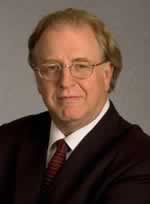 By Gene Policinski
By Gene Policinski
First Amendment Center vice president/executive director
Streetside news racks — those ubiquitous metal or plastic boxes that dispense newspapers and informational publications of all types — may seem an anachronism in the high-tech Internet era.
But in fact they remain a significant method of distributing news and information to Americans — a handy, reliable news source for busy commuters, quick-stop shoppers and millions of those still without or who just don’t want regular Web access. For lower-income citizens, those simple machines are a convenient and affordable method of getting the news on a regular basis.
And for all Americans, these modest news dispensers are a constitutionally protected — and economically important — element of a free press. The right to publish without government control must include the same freedom to distribute without government restraint — and that distribution has to be free to be economically viable or it’s just another method of censorship.
Put another way, using yet another freedom under the First Amendment, of what true value is freedom of speech without the freedom to be heard?
Weather, vandals and the occasional errant motorist pose regular threats to these free-standing vendors. But occasionally, the danger comes from another source: local officials concerned with issues ranging from pedestrian safety to street-level beautification efforts to finding new sources of revenue.
The latest flap comes in Nashville, Tenn., where on May 16 Mayor Bill Purcell vetoed a Metro Council proposal to make 20-plus local publishers pay fees and maintain news racks in order to place them on Music City street corners and other locations.
Purcell cited First Amendment concerns in his veto message, calling the ordinance “an abridgement of a free press.” Courts have upheld some ordinances that affect news racks as an “incidental” part of their purpose — such as laws creating historical zones where such racks did not exist in the designated era. But from local courtrooms to the U.S. Supreme Court, from Lakewood, Ohio, to Atlanta to Cincinnati and beyond, judges have held that municipalities do not have unfettered power over how we receive our news, or what kind of news we get, from news racks.
In Nashville, rack regulators would charge a $50 initial fee and a $10 annual fee thereafter, which on its face appears to make the ordinance a money-raising proposal. But the sponsor of the bill speaks more of eliminating sidewalk clutter, making removal or prevention the focus. So the fees seem more a means of restriction and regulation rather than a method for revenue.
A hallmark of American law and constitutional protection is that government does not have the power of “prior restraint” on the things Americans write and publish. But that protection falls short if citizens don’t have ready access to what is written and published.
In that vein, it’s not a stretch to say the same logic that wouldn’t permit the government to prevent The New York Times and Washington Post from publishing news of the Pentagon Papers won’t accept legislation intended to choke off access to a free press on a public street.
It would seem common sense that news racks that block pedestrians from using city sidewalks simply could be relocated off to the side, and that poorly maintained boxes would be dealt with voluntarily. Whose business wants to be associated with a shabby and unsightly image? As to abandoned boxes: Well, if there’s no “free press” using the box, there’s no free-press issue.
The Nashville ordinance and others like it may appear simply to involve a mundane aspect of daily urban life — regulating so-called “street furniture.” But the mayor’s veto racks up a win for one of our highest ideals: Under the First Amendment, government doesn’t get to play editor or publisher in the newsroom or on the street corner.
Falwell’s legacy: A First Amendment freedom affirmed
When the Rev. Jerry Falwell died on May 15 he was lionized and criticized for his labors in religion and politics, as the founder of the Moral Majority and of Liberty University, in Lynchburg, Va.
But his legacy also includes one of the more significant First Amendment cases in the nation’s history, stemming from a lawsuit he brought against Hustler Publisher Larry Flynt over a parody — a fake liquor advertisement — that featured Falwell in the magazine in 1983.
The U.S. Supreme Court held in Hustler Magazine v. Falwell that without a showing of “actual malice,” Americans are free to satirize public figures — affirming an American tradition that began with the nation’s earliest “journals of opinion,” which often published scathing images of politicians whom they opposed.
In an Aug. 18, 2004, taping of the First Amendment Center’s television program “Speaking Freely,” Flynt said he rejected his lawyer’s advice to settle Falwell’s lawsuit out of court — and gave his view of what his Supreme Court victory meant:
“I remember Justice Rehnquist's words even so clearly today,” Flynt said. “He said, ‘Simply because the government finds speech offensive does not give them the right to repress it.’"
Flynt said a loss would have meant “no public figure would ever have to prove libel. All he would have to do is go into a court and prove you hurt his feelings. Whether it's a political cartoonist or an editorial writer or what have you, you know. The press would have been virtually doomed.
“I don't think it was the Supreme Court siding with me over Reverend Falwell. I think that they were looking at the practical implications of the decision if they would have ruled the other way,” Flynt said.
Source: http://www.firstamendmentcenter.org/








